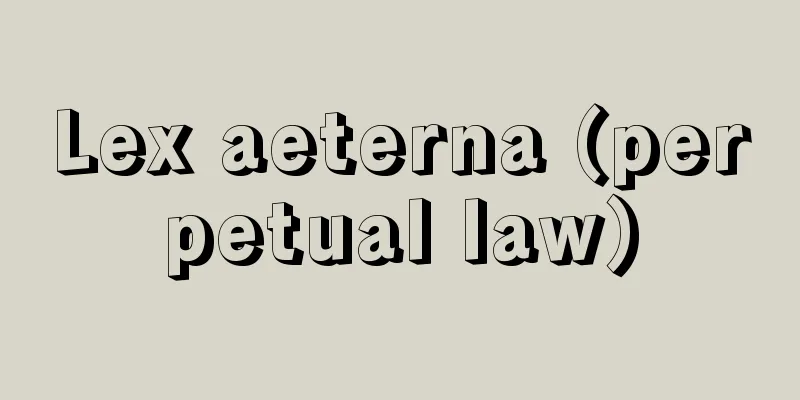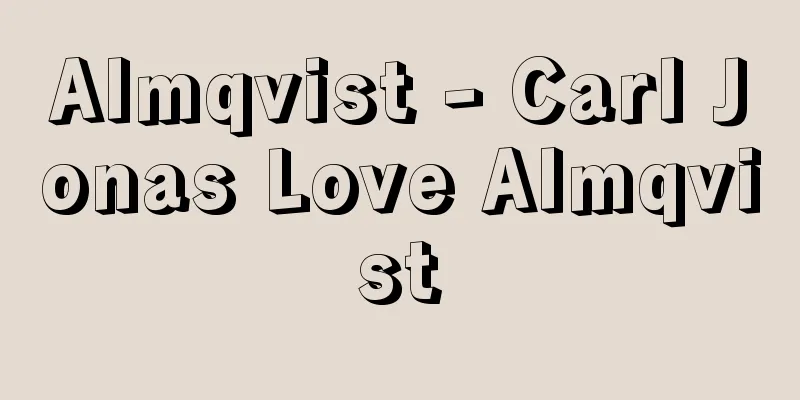Lex aeterna (perpetual law)

|
The law that governs all things is the divine providence of the Christian God, the creator of the world. The idea of eternal law is also seen in Augustine, but Thomas Aquinas took eternal law to be the apex and systematized the various ideas of law that had existed since ancient Rome, such as divine law, natural law, and personal law (universal law and civil law). Source: Encyclopaedia Britannica Concise Encyclopedia About Encyclopaedia Britannica Concise Encyclopedia Information |
|
世界の創造者たるキリスト教の神が万物を支配する法,神の摂理。永久法の観念はアウグスチヌスにもみられるが,トマス・アクィナスは永久法を頂点として,神法,自然法,人定法 (万民法と市民法) など,古代ローマ以来のさまざまな法の観念を体系化した。
出典 ブリタニカ国際大百科事典 小項目事典ブリタニカ国際大百科事典 小項目事典について 情報 |
<<: Permanent waterproofing agent - waterproofing agent
Recommend
atomic power
…The energy generated by nuclear reactions is cal...
Charkhā (English spelling)
It means a spinning wheel in Hindi. During the Ind...
Trial in absentia
〘noun〙① A trial in which the defendant is absent. ...
Heme - Hemu (English spelling) heme
In a broad sense, it is a general term for comple...
Kodera [town] - Kodera
A former town in Kanzaki District, located in the ...
Taishet (English spelling)
A city in Irkutsk Oblast, in the south of Eastern ...
Ullambana Festival
...A memorial service for ancestors held mainly o...
Thumb ring (English)
...The custom of not wearing rings on the middle ...
NGC Catalogue - New General Catalogue of Nebulae and Clusters of Stars
Catalog of nebulae, star clusters, and galaxies. N...
Kisei [town] - Kisei
An old town in Watarai County in the central south...
Armane School - Armane School
…When the party split in 1981, it rebelled agains...
Fignel
A Russian female revolutionary and social activist...
Shoden
[1] (abbreviation of "Daisho Kangiten (Great ...
Altitude above sea level -
Height above mean sea level. When flying within a ...
Prunus maximowiczii (English spelling) Prunusmaximowiczii
…[Hiroshi Aramata]. … *Some of the terminology th...









